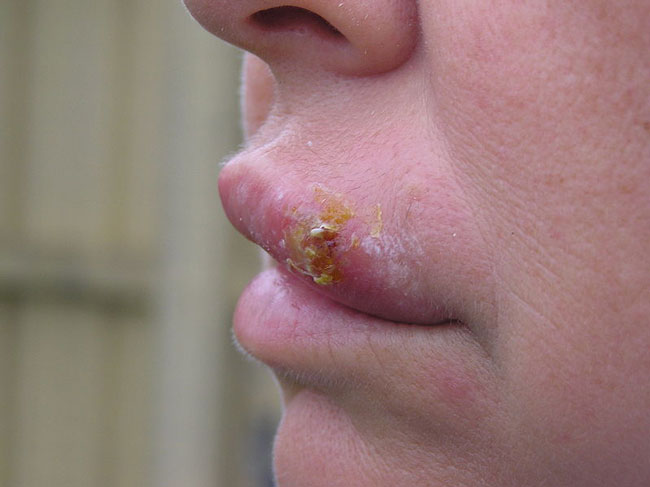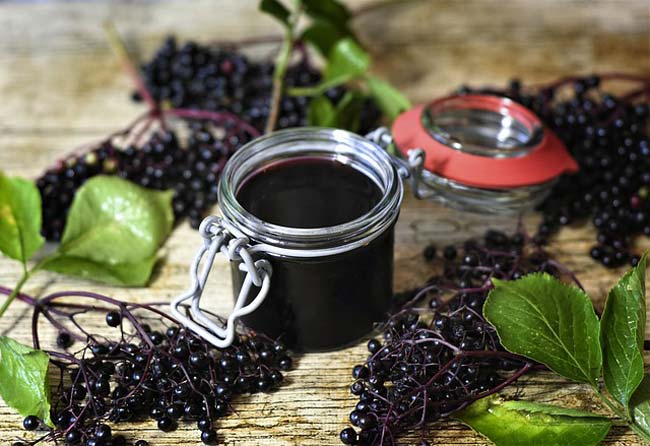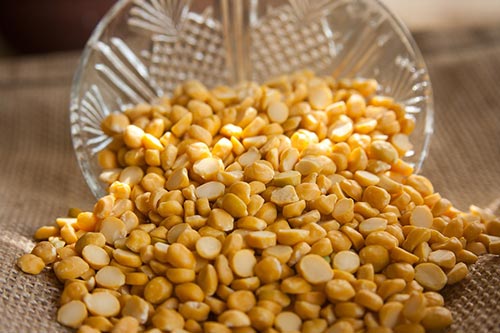Cold sores, also commonly called fever blisters, look like small blisters that often appear near the mouth or lips. The sores are usually just uncomfortable but can be painful, especially if broken.
They usually last from seven to ten days and can be contagious during this time.
Cold sores are thought to be a symptom of the herpes simplex virus (HSV-1) – which many adults are thought to have, even if they never experience any symptoms.
The virus can remain dormant before and after a cold sore breakout. Some people may never experience a cold sore even though they test positive for the virus.
Some popular remedies include antiviral medications or other topical treatments.
These usually reduce the length of the outbreak but there are many safer home remedies for cold sores that can help the sore go away faster while also reducing pain and swelling.

Never pick a cold sore. It's appearance will worsen and it will take longer to heal.
12 Home Remedies for Cold Sores
A variety of natural remedies can be used to ease the pain and discomfort of a cold sore. Popular methods include using licorice root, which contains properties thought to be antiviral, or rubbing on a cornstarch paste.
Rhubarb and sage have also been used to alleviate the symptoms, while lemon, in the form of tea or a compress, can be used too.
Taking vitamins to boost the immune system is also thought to help fight off the infection and heal faster.
Many of these home remedies for cold sores have been studied and the results documented in the scientific literature, while others are remedies passed down by word of mouth through generations.
1. Lemon Balm
Lemon balm is thought to have antiviral properties that can help to reduce the redness of a cold sore. It may also decrease the swelling and make the cold sore appear slightly smaller.
One study found that Melissa officinalis, the official name of the lemon balm plant, had an antiviral effect and may protect against infections that can lead to cold sores (1).
2. Aloe Vera
The gel from aloe vera plants has been widely used as a natural remedy, especially to relieve the pain from burns. Many people grow it as a houseplant and like to keep it nearby to apply directly if they get burned while cooking.
A study examined the effects of aloe vera on HSV-1 infections. The results found that aloe vera gel did have an inhibitory effect and could be used topically to treat cold sores (2).
Further studies of the anatomy and characteristics of the aloe vera plant found that it does have anti-inflammatory actions and can have positive effects on the immune system. It also has antiviral effects and other healing properties (3).
3. L-Lysine
The amino acid L-lysine can be taken orally or used topically to treat the virus.
One study found that it helped to reduce the frequency and severity of infections. Those who received L-lysine treatment also had a significantly reduced healing time (4).
Yet another study found that those who received a supplement of L-lysine had fewer lesions.
The lysine serum concentration seemed to directly correspond to a drop in the frequency of outbreaks, suggesting this amino acid can help treat outbreaks of cold sores (5).
=> See L-Lysine supplements here
4. Olive Leaf
Leaves from olive trees and their extracts have been used in skincare, cooking, and as a natural health remedy.
The leaves have antiviral, antibacterial, and antifungal activities which can make them effective against cold sores.
When studying the effects of the olive leaf on the HSV-1 virus, researchers found that applying extracts may help to prevent the virus entering cells.
Using olive leaf consistently may produce anti-HSV-1 activities to minimize viral replication (6).
5. Wakame Seaweed
Wakame seaweed has been studied in Japan for its immune-boosting effects. One study found that applying seaweed to human immune system cells in an in-vitro study resulted in increased antibody production (7).
When wakame was investigated to see if it had similar effects on HSV-1 infections, it was found that it had inhibitory effects and was linked with an increased rate of healing.
Consumption of seaweed also had a positive effect on the multiplication of T cells which are important for immune defenses (8).
6. Zinc Supplement
Zinc is a mineral that can be found in many foods such as legumes, seeds, and nuts. Those who do not get enough zinc from their diet can add a supplement to increase their levels.
In addition to other health benefits of consuming zinc, it has also been shown to help with cold sores. One clinical trial treated those with oral outbreaks with a topical zinc cream every 2 hours.
Those who began their treatment early enough had cold sores for an average of 5 fewer days. They also experienced less soreness, itching, and blistering which led researchers to conclude that using zinc was an effective treatment (9).
=> See Zinc supplements on Amazon here
=> Or see organic Zinc GHC here
7. Tea Tree Oil
Tea tree essential oil has long been thought to have many health benefits. When used against the HSV-1 virus, one in-vitro study found that using even a low concentration of essential oil inhibited viral replication (10).
When tea tree oil gel was used topically in actual study participants, there was a reduction in the amount of time it took the cold sores to heal.
However, the differences were very small and researchers realized that there wasn't any statistical significance to conclude that the tea tree oil made the difference (11).
More studies are needed to determine if tea tree oil is an effective treatment against cold sores. But if you already have some of this essential oil on hand, you can try it and see if it makes a difference for you.
One study did find that tea tree oil possesses antiherpetic, anti-inflammatory, and pain-relieving properties, so it may be helpful when used against cold sores (12).
=> See Tea Tree Oil tinctures here
8. Peppermint Essential Oil
This essential oil has been found to be quite effective against HSV-1 due to its antiviral abilities.
A study found that peppermint oil had a virucidal effect and was effective against 99% of the virus. Because the oil can be used topically, it might help treat recurrent infections (13).
=> See Peppermint Oil tinctures here
9. Witch Hazel
Witch hazel works as an astringent that has anti-inflammatory, antimicrobial, and antiviral properties. It can help to ease skin irritation and may help treat treating bacterial and fungal infections.
One study found that witch hazel extract, also known as Hamamelis virginiana, had significant antiviral effects against HSV-1.
It is thought that the proanthocyanidins, a flavonoid, have antiviral properties which help to reduce inflammation (14).
=> See Witch Hazel tinctures here
10. Vanilla Extract
Although it is most commonly used in baking, vanilla also has some health properties, including its anti-inflammatory properties.
While there haven’t been studies to determine how effective it is as a remedy against cold sores, it has long been thought to be beneficial.
It's antimicrobial nature may kill bacterial growth, while the anti-inflammatory properties may reduce inflammation.
Some think that vanilla can also fight infections to prevent secondary outbreaks and cleanse sores through the alcohol present in the extract.
11. Echinacea Tea/Supplement
Echinacea is thought to be a good immune system booster and can be consumed as a tea, supplement, or essential oil.
It also has antiviral and antibacterial effects, which may help fight off a cold sore or promote faster healing.
Although there aren’t any studies that have directly looked at its connection with cold sores, it has been researched for other health benefits. Many of the results are inconclusive so it is unsure whether or not it is truly effective.
However, many people find it to be soothing and there are few negative side effects, so it can’t hurt to use when coping with a cold sore.
8 Easy Tips to Avoid Getting a Cold Sore
The home remedies for cold sores will help in an outbreak, but prevention is always better than cure. Use the tips below to prevent getting a cold sore in the first place.
1. Improve Immunity Through Diet
Try to boost your immune system by consuming a diet rich in healthy foods such as leafy greens and fresh fruit and vegetables.
Consume foods that are high in antioxidants, including blueberries, citrus fruits, broccoli, ginger, garlic, and turmeric.
2. Eat Vitamin E-rich Foods
Vitamin E can help the body grow new cells and repair cellular damage. It also helps to reduce internal inflammation and has antioxidant effects.
You can get more Vitamin E by consuming sweet potatoes, almonds, spinach, nuts, and avocados.
3. Eat Vitamin C-Rich Foods
Add more Vitamin C to your diet to help your body increase in white blood cells to fight off infections.
Look for foods that have vibrant colors, such as spinach, broccoli, tomatoes, peppers, berries, oranges, and strawberries.
4. Stay Hydrated
Drinking a lot of water and eating water-rich foods will keep your body well hydrated. It also ensures the body continuously flushes toxins from the system so they don’t build up and result in lowered immunity and a potential outbreak.
5. Get More Sleep
Getting enough sleep is one of the best ways to care for your body and maintain a strong immune system.
Not only is it important to get enough sleep, but to sleep at the proper time. Go to bed early and rise early to ensure a healthy sleep-wake cycle.
6. Don’t Share Drinks
Stop infections from spreading by avoiding contact with others through the sharing of drinks. Don’t share items that come into contact with your mouth such as eating utensils or chapstick.
7. Replace Your Toothbrush
Once you have an outbreak, get rid of your toothbrush because it may contain remnants of the virus.
Get a new one anytime you experience an outbreak and replace your toothbrush often, even if you are symptom-free.
8. Don’t Touch or Pick Cold Sores
Anytime you are experiencing a cold sore, resist the urge to touch or pick it. Until it heals, you could be contagious and spread the infection to other parts of your body, or others nearby.




Leave a Reply